Pedro Sanchez battles to bring Pedro Duque to the head of the European Space Agency
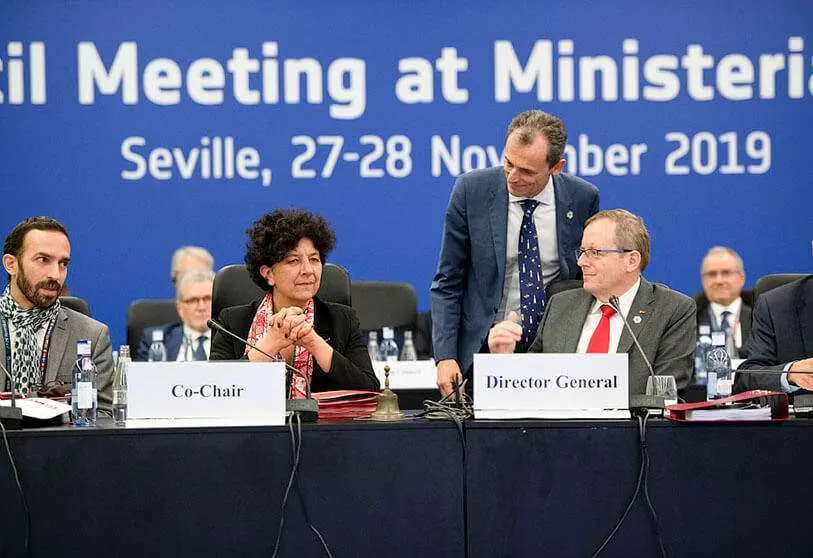
Just nine days after the 45th anniversary of the signing of the international agreement that gave life to the European Space Agency (ESA), the President of the Spanish Government, Pedro Sánchez, has just drawn his sword to fight a battle to put his Minister of Science and Innovation, Pedro Duque, at the head of the main space organization of the old continent.
The confirmation of the head of the executive made public on Sunday, June 7, that the Moncloa is considering nominating former astronaut Pedro Duque to fill the vacancy of ESA's Director General, which German Johann-Dietrich Woerner will leave within a year, indicates that the Spanish authorities have already obtained sufficient support from the 22 member countries of the Agency to make their bid a success.
Otherwise, making public the announcement with great fanfare and then obtaining a negative result would be a fiasco for the minister and would splash the already deteriorated credibility of the government and the president himself. It should be borne in mind that the position of ESA leader is coveted by other senior executives from different countries, and Spain is not exactly one of the big European investors in space.
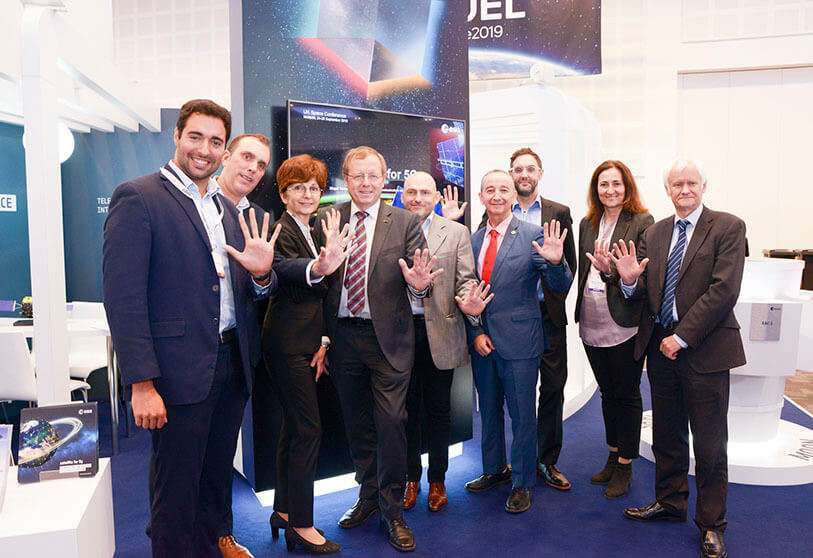
Rumours of Pedro Duque's candidacy to become the Agency's Director General have been heard in sources close to the minister even before the ESA ministerial meeting held in Seville last 27-28 November, hosted by the Minister of Science.
The current head of the Agency, "Jan" Woerner, had taken up his post on July 1, 2015 to exercise the maximum executive responsibility of the organization for four years. But at the end of his term on June 30, 2019, instead of seeing his position renewed for another four years, he found to his surprise that the term was extended by only a couple of years. The decision was a real blow to the German, as his predecessor, Frenchman Jean-Jacques Dordain, had been in charge of ESA for three consecutive terms, no less than 12 years.
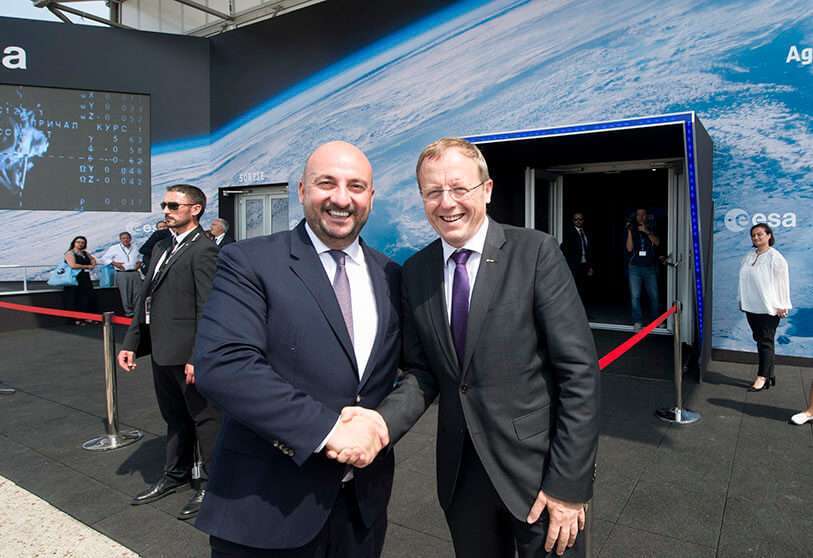
What happened to "Jan" Woerner failing to renew his position for four years? There are several reasons why he is leaving. Curiously, when he became ESA's top executive, the German already had extensive experience in senior space management.
He had been representing his country in the organization for several years, being the president of the German Aerospace Agency (DLR). However, "he got off on the wrong foot and made controversial decisions that caused a great deal of unrest," say those who know the ins and outs of his presidency. One of them was to proclaim without adequate consensus the Moon Village project: to set up an inhabited colony on the moon.

Pedro Duque is not going to have it easy. When the deadline for applications opens, the current holder of the Science and Innovation portfolio will find himself faced with major competitors. Among the names being considered is that of the prestigious Italian physicist Roberto Battiston, former president of the Italian Space Agency (ASI) and current advisor to the Minister for Universities and Research, Gaetano Manfredi. But Pedro Duque's biggest rival will be the former Luxembourg Minister of Economy, Etienne Schneider, who is behind the creation of the Grand Duchy's Luxembourg Space Agency in September 2018.
Since establishing its own agency, the small but wealthy country has significantly increased its competitiveness in the global space market. For example, it favours the establishment of space-related industries and companies in its territory with tax benefits, encourages the collaboration of its companies with the large European and North American corporations in the sector and promotes the opening of new markets for SES, a large company with Luxembourg capital, which is the largest European operator of commercial satellite communications.

Pedro Duque's candidacy will be a winner or doomed to failure if it is supported or opposed by Jean-Yves Le Gall, the president of the French space agency, the Centre National d'Etudes Spatiales (CNES), from 2013. A person of great international prestige and the man of reference for the presidents of the Republic, at 61 years of age he has been practically everything in the sector and has won most of the prizes and recognition since he graduated as an engineer in 1981 and began working on space projects.
From September 2016 until last year, Le Gall combined his position at the head of the CNES with that of president of the International Astronautical Federation, the most important space organization in the world. And between 2001 and 2013 he had been President of Arianespace, the European launch service company which markets the Ariane 5, Vega and Russian Soyuz rockets from the European base in French Guiana.
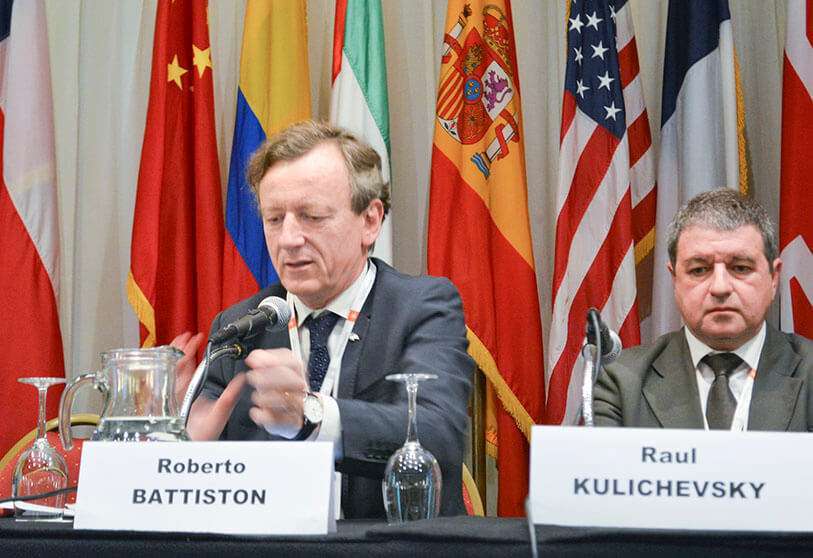
ESA develops its own launchers, satellites, technologies and services and works closely with the space agencies of countries outside Europe, such as the United States, Russia, China, Japan, India and Israel. Its 2020 budget amounts to 4.87 billion euros, resources that are dedicated to gaining in-depth knowledge of the Earth's environment and that which surrounds us, as well as the secrets of the Solar System and the Universe.
Contrary to popular belief, the ESA is not a European Union organisation, although it has close agreements with Brussels regarding the constellations Galileo - the European GPS - and Copernicus, the largest space network for monitoring the environmental health of the atmosphere, the seas and the surface of the Earth. As equipment specialists, the Agency's job in both projects is to design the technical component and to build, orbit and operate the satellites funded by the European Commission.
Throughout its still short history, ESA has established a number of firsts in the exploration of the cosmos: the encounter of the Giotto probe with Halley's comet in 1986, the landing of the Huygens probe on Titan, Saturn's moon, the descent of the small Philae device on a comet in 2014, and the use of the Planck space telescope to generate the most detailed map of the cosmic microwave background ever created, the remains of the radiation from the Big Bang, between 2010 and 2013.
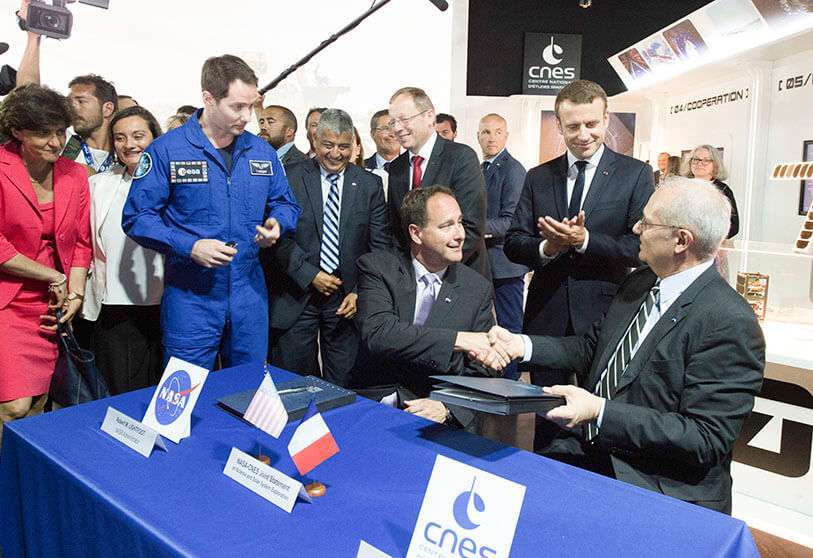
The Convention establishing ESA was signed in the French capital on May 30, 1975 by the plenipotentiaries of Belgium, Denmark, France, Germany, Ireland, Italy, the Netherlands, Spain, Sweden, Switzerland and the United Kingdom. The document was signed on behalf of the Madrid government by Spanish diplomat Miguel María de Lojendio, then Spanish ambassador to Paris. The Convention entered into force on October 30, 1980, after the deposit of the last instrument of ratification by France.
Austria and Norway (1986), Finland (1995), Portugal (2000), Greece and Luxembourg (2005), the Czech Republic (2008), Romania (2011) and Poland (2012) have progressively joined. The latest countries to join have been Estonia and Hungary, which signed the accession agreements in February 2015 and became the 21st and 22nd Member States respectively. Canada and Slovenia are associate members, while seven other European Union nations - Bulgaria, Croatia, Cyprus, Latvia, Lithuania, Malta and Slovakia - have cooperation agreements.
The idea of providing Europe with an autonomous space capability from the United States and Russia dates back to the early 1960s. It was sponsored by the President of the French Republic, Charles de Gaulle, and supported by the British Prime Minister, Harold McMillan. Thanks to his drive, an organization was created to develop launchers (ELDO) and another dedicated to satellites (ESRO) in which Spain already participated. Their unsatisfactory results led to the disappearance of both and the foundation of ESA.









